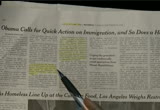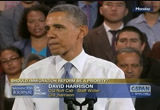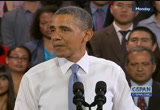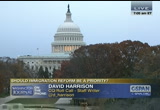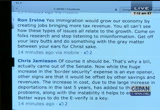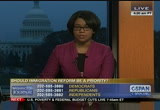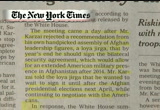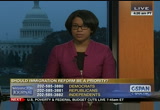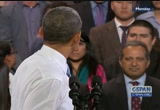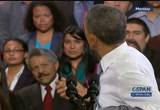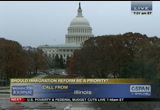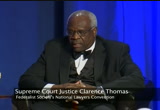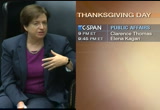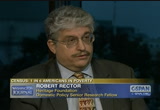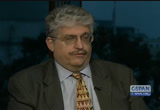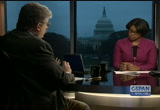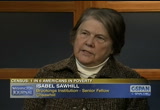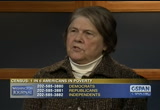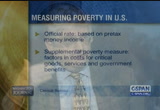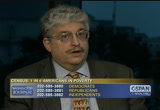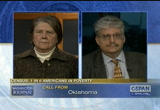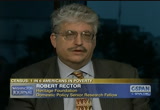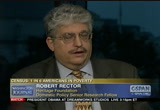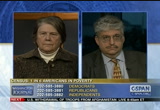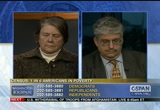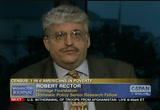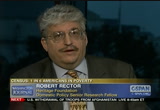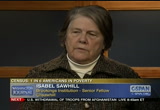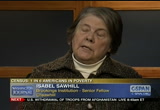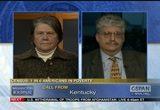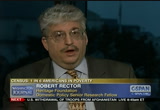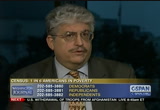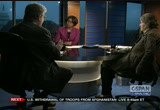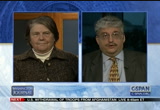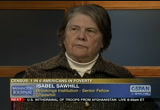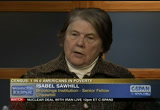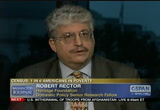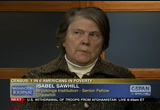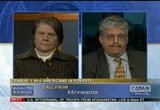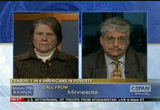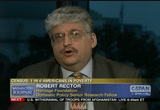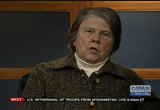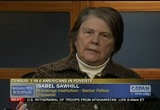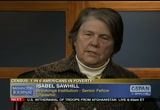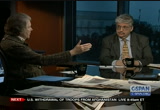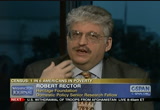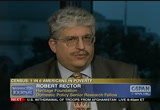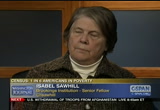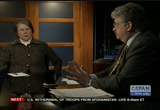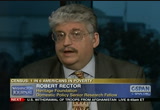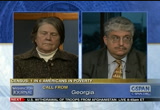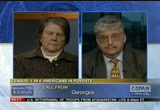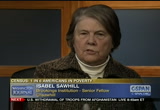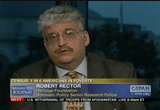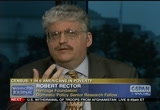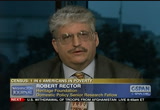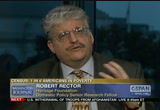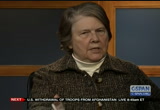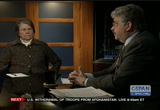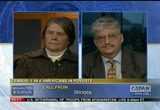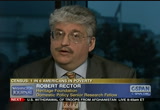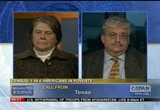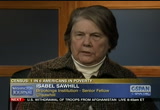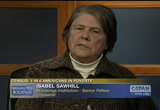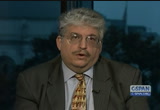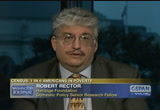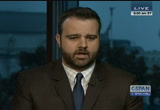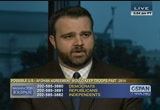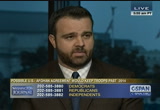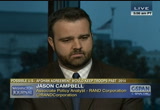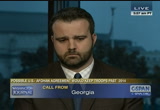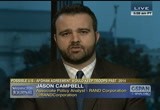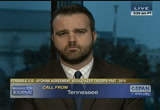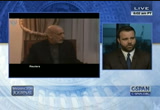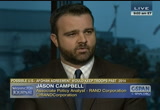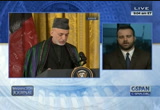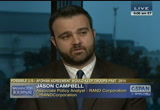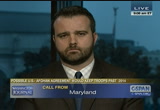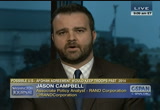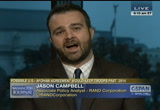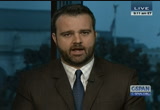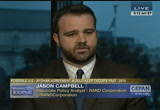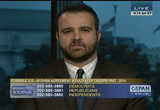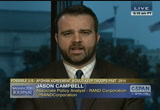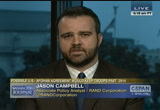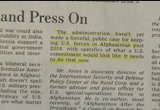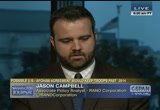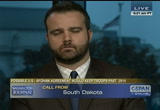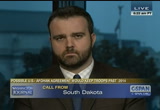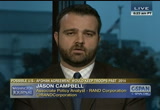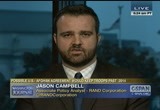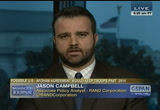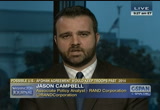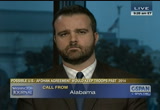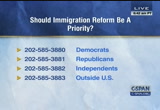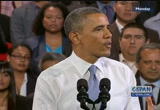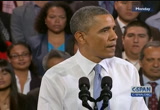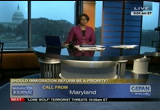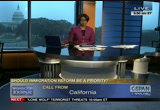tv Washington Journal CSPAN November 26, 2013 7:00am-10:01am EST
7:00 am
perspective on the possibility of an agreement between afghanistan and america to keep troops in the country past the host: president obama was confronted by protesters monday demanding he do more to push the issues on immigration. meanwhile, he argued congress was standing in the way of comprehensive immigration reform. republican run house has not taken action on the issue. time is running out. there are few working days for congress left this calendar year. that is our topic today. should immigration reform be a priority? welcome to " washington journal"
7:01 am
this november 26. if you would like to join in the conversation, you can call in the line for democrats is (202) 737-0001 republicans the line is (202) 737-0002 and for independence (202) 628-0205. you can also reach out to us on social media. twitter you can find this -- find us at the http://twitter.com/cspanwj. e-mail you can reach out journal@c-span.org. now to immigration, starting with the headline in this morning's " new york times" --
7:02 am
joining us now to break down the issue is david harrison. thank you for joining us by phone this morning. biggest takeaways from the president speech in san francisco yesterday? despite think everything, the talk that immigration will get done this year, is is that president obama and the white house is committed to pushing for this. it seems the president has not of gettinghe idea something done in the next few weeks, even though it seems a lot of people on capitol hill have. that speech yesterday, the president seemed inclined to
7:03 am
support breaking the immigration reform effort down into pieces rather than a big, sweeping senate bill. does that mean it is more likely to get something done? they have been indicating it is something they would be willing to go along with. i think the division between having it in pieces and a comprehensive bill is not as great as it seems. ultimately the democrats say they would be ok with having a bill in pieces, so long as every single aspect gets done, and that includes a path to citizenship to those here illegally. whether or not they do it in pieces, democrats will only go along with it, provided every single piece is there. day lookingf the very much like a comprehensive bill.
7:04 am
whether it makes it easier, i am not entirely certain. to have thoseree pieces, what goes into the individual pieces is still very controversial. yesterday the president talked about how immigration reform could affect the economy. let's take a listen. lex we know the immigration reform we are proposing would boost the economy and shrink our deficits. independent economists have said if the senate bill became law over the next two decades our economy would grow by $1.4 trillion more, and it would reduce our deficit fight $850 billion more. an you do not have to be economist to figure out workers will be more productive. they have their families here with them. they are not worried about deportation living halfway around the world.
7:05 am
this is not just the right thing to do, it is the smart thing to do. david harrison, your comments. the arguments, the economic argument is one that we have heard a lot from the business community. major business groups, including facebookcompanies like have made that point, that immigration reform is something that we need to help american competitiveness. what he is referring to their more specifically and groups like this book are referring to is it is not so much a question of legalizing people here making it illegal for businesses to hire foreign
7:06 am
graduates of american universities. that hire all from stanford with phd's and high degrees. employers are really clamoring to be able to hire those people but right now it is so difficult to get people like that on board. what the president is saying with immigration advocates is that this would really help boost the economy, make it possible to hire talented workers. one more question. how do you expect this debate to fill in next year's political contest? at this point i think it is pretty clear we will not get anything done in the next few days of this year. the question is, can it happen next year at originally a lot of because of the
7:07 am
elections. increasingly you hear they will not give up on that. they are talking about now becoming very actively -- active politically in campaigns. whether they can unseat a few republicans, that remains to be seen. if they can, i do not think it will be very many. i do not think it is an issue that will tip the house to the democratic column next year. speaking toe been david harrison. thank you for speaking with us this morning. another headline rum today's -- from today's " washington times" --
7:08 am
going now to your calls on our question today. should immigration reform be a priority? first, maria in new jersey on the line for independence. good morning. i see priority should be enforcement of current immigration laws. all of the officials take an oath to keep the constitution, and part of that is to promote the general welfare and promote domestic tranquility. there are 21 million illegal aliens. if their families come in, we are looking at 100 million, mostly unskilled who will be sapping our resources. we have a huge unemployment problem. look at detroit. also, we have a bankrupt budget. think jefferson had it right when he said the tree of liberty needs to be watered from thai -- time of time by the blood of
7:09 am
patriots. government,pers and and i think american citizens must stand together and demand they resigned and have people better for us. thank you. call from virginia. leon the line for republicans. this is a tough one for me. i am an immigrant. it is in the, moral fabric of what we're all about for a land of immigrants. only that, we talked about the national aspects, the national security aspects. unfortunately emma we have a situation where this is the long-term solution. it is something we need to address right now, but we have so many issues going on right now, so many things triggering us to react right now.
7:10 am
we are looking for the quick fix. until we get serious about it, he ran on the fact he was going to fix this, but unfortunately there is a lot of distractions. until we really get down to business and deal with this, because it is a financial issue and homeland security issue. what do you believe congress needs to do now to address immigration reform? caller: i think there needs to be a serious commission to get together. we need to enforce the laws we have right now. the reality is right now we have immigrants that have come here illegally, and we have to deal with it. to be ay needs compromise. i think once we have that, once we get the borders situated and are able to enforce our laws, we need to really enforce the laws.
7:11 am
we were not enforcing the laws. now we're in a situation where we have our country in flux with immigrants that are sapping our economy. taxes, andt paying this is all attributing to the overall issues we are having. host: thank you for your call. she let in georgia on the line for democrats. morning.ood i think president obama did very well. i do not think that young man was a heckler, just getting the word out. but president obama did give the to be intwo years free the country. i do not know if he can extend that or not. i certainly understand the young people whose parents have been
7:12 am
deported. as president obama said, we have to go by the law. that is what he is doing. that congress is dragging their feet on this. , want to do a piecemeal president obama says ok, but let's get it done. that are too many things they just dragged their feet on up there for political reasons. that is all i have to say this morning on that subject. taking a couple of your comments on facebook. you can weigh in at facebook .com/cspan. ron writes --
7:13 am
that is a comment on our facebook page from chris jamison. taking another one of your calls . ronald in arlington, virginia. on the line for independents. i am an independent scholar and i believe america needs an independent party, but to answer your question, no immigration should not be the priority right now. because of that, we have to get the economy in order in the debt ceiling in order, and the affordable care act, obamacare, -- getese immigrants did
7:14 am
a green card or something like that, and because of their wages, will they need a subsidy under the affordable care act to get health insurance? that is my question. another call from jenny in ohio. on the line for republicans. good morning. interestingt of comments this morning. mine is really short. i would like all the people in charge to sit down and read the constitution and they all have to take the test to see if they got it right or not. do they have lost? our next caller, bobby in hickory, north carolina on the line for democrats. good morning.
7:15 am
i like c-span. i listen to it every morning. i think they should go ahead and pass that. what is holding it up is the tea party. that is what is holding everything up. think you, and you have a good day. god bless you. a couple of comments from twitter this morning. s --e tweet's --ther tweet from joy last week we heard john boehner talk about whether or not immigration reform is dead. let's take a listen to what he had to say. >> is immigration reform dead yet go absolutely not. i have made clear going back to
7:16 am
the day after the last election in 2012 that it was time for congress to deal with this issue. i believe the congress needs to deal with this issue. our committees are continuing to do their work. there are a lot of private conversations underway to figure out how do we best move on a common sense that a step aces to address this very important issue, because it is a very important issue. john boehner speaking on the prospect of immigration reform. going now too late facet, florida. richard on the line for independent. good morning. i did not get your name. good to hear from you. need to do is focus on the economy, jobs, what is going wewith our foreign condoms.
7:17 am
have 91.5 million people out of work, and we're going to bring another 40 million people into the country? we have laws now that govern our just thatn, it is this immigration refuses to enforce the law. we need to seal our borders, protect dogs, citizens and the economy. this administration refuses to do that. the lady from new jersey hit the nail on the head, she is exactly right, this should not be a priority. what should be a priority is we only have 50% of the work were still working. toneed to bring that up somewhere around 75-80% at least. new immigration law. this is what the political leaders. it is what they want, not what the people want.
7:18 am
we need to work on our economy and our jobs. thank you. another call for republicans. mary from north richmond hills. sayer: i was calling to that our country is already getting too many people. if we should happen to pass the law and allow all of these to become citizens and all of their relatives coming in. i think they should change the immigration law to subtract that amount of all or just shut down immigration so we will not be overcrowded. i agree with many of the other that this is not the time to do this because we have enough turmoil right now and our country.
7:19 am
pushnk it is just another for obama to try to get something across to keep his senate and stir up a little trouble. host: the house speaker john boehner said he is also interested in getting immigration reform across the senate line. your thoughts on that? are some things that definitely need to be done. but first of all we need to follow the law already on the book. nothing is push through until they get this health program figured out, either gone or fixed, because our country has become so divided.
7:20 am
immigration is going to be a big fight. thatse it has already been every time it is brought up. we need to settle one thing before we do another. i do agree, something needs to be done about what is going on. we need to fix our border where they cannot come across, but our country is growing. you have to look way down in the future. i know i saw a program not too long ago about people her population. but 300 million, our cities are overcrowded. -- the economy is bad. we have sent everything overseas, including making cars, jeans, and all kinds of stuff and mexico. it is time we help ourselves a little bit, i think. i appreciate you letting me talk. host: the next caller is a knee
7:21 am
and connecticut. on caller: the line for democrats. i have to be very vocal on this. i am with the republican fund. we have enough people -- i am with republicans on this. we have enough people in our country already. our first priority to me should be climate change or global warming and president obama should not wait for congress on this. meet with knowledgeable scientists as soon as possible and find answers for this, delve into it right away. yukonis as professor from that sees a correlation with the into-hed bringing that says that you can fight the -- bys of pollution wiped
7:22 am
reducing nitrogen in the water and bring a balance to nature and have this global climate thing attacked right now and get our firstnd make its priority. president obama should take the lead on this. a couple of other things making headlines. a story in " the new york times" -- he said they should find the bilateral security agreement, which will allow for an extended american presence in afghanistan post 2014. he told the assembly he wanted to wait to sign it until after the presidential elections next april while continuing to
7:23 am
negotiate with the americans. be ad immigration reform priority? talking now to james in silver lake indiana on the line for independence. good morning, c-span. i believe we have had 38 years of trying to get this war situation under control. 38 years. getarty has even tried to it under control. i do mean both parties. womenve chinese president coming in in california. what you think the party should be doing about border security they are not doing right now? they ought to get it under control. they are coming across the border and the drugs are coming across the border and the ones that are coming in on student
7:24 am
studying. why can't we find out where they are? if they are overstaying, deport them and do not give them another visa. it is that simple. you can do this. come on, all. -- people. caller: obama has lagged so much on everything. mainly health care and and ghazi. benghazi. why would anyone believe anything that those people said, especially obama on the illegal aliens. if they want to say they cannot support them, mexico deported 40 million of them in this country. we can deport them back. cut all the benefits off they
7:25 am
are getting. i talked to a schoolteacher yesterday who said every time they come in here they are getting free school lunches. they go to walmart to get food stamps. they get everything. they get free medical. they get all this stuff, and we are paying for it, and we are sick of it. the port all of them. inc. you. thank you. host: patrick on the line for democrats. caller: you look wonderful. i am profoundly disturbed at this immigration situation. it is appalling our nation cannot use the national guard and military to bring back troops and essentially secure the border when mexico itself secureeir own troop to the border on the southern part of the nation. this is about geopolitics.
7:26 am
immigration aspects of the bill is designed for one specific purpose, and that is to ensure the profit structure of a, multinational corporations. the american people should be profoundly disturbed of what is indebted in the situation, which is biometric tagging of immigrants who come into america , because the next step in this when it comes to civil liberties is to deploy these tech knowledge is laterally across the board to the american all. i have to tell you, we are really on a slippery slope when it comes to our foundational liberties as american citizens. i think we are in very dangerous territory now. topic again this morning is whether or not immigration reform should be a priority. -- obamathis morning
7:27 am
heckled during speech. take a listen to that interaction right now. >> we're going to grow our economy, make our country more secure, strengthen our families, and most importantly we will to our character as a nation. i need your help. my family is separated. >> that is what we are talking about. bexley's -- use your executive order. please. >> obama, obama, obama. to stopave the power deportation. >> actually, i do not. that is why we are here. you.ank all right.
7:28 am
do not worry about it, guys. let me finish. go.e guys do not need to let me finish. you can stay there. [applause] hold on a second. i respect the passion of these young will. because they feel deeply about the concerns for their families. what you need to know when i am speaking as president of the united states, and i come to it's inmunity is that fact i could solve these problems without passing laws in congress, then i would do so. is from president obama speech in san francisco
7:29 am
yesterday. reading now from this morning's wall street journal. during the speech the president was interrupted by a protester who urged him to take immediate executive action, saying his home and we had an separated. the president told the man that he could not take direct action without the cooperation of becomes. deportation has a central issue for immigration issues. nearly 12 million immigrants live in the u.s. illegally according to the nonpartisan pew hispanic center. the obama administration has been deporting 400 million annually, more than during the bush administration. from this morning's " wall street journal" -- monte labban writes --
7:30 am
our topic this morning, should immigration reform be a priority? going to alabama to talk with randall on the line for republicans. morning.ood first of all, i am a native american. i am not indian. i am scots irish. in order to leave one country and go to another. this was not a country when my family came here back in 1682. there is millions of us around here in this country. thisact that the matter is is not immigration, this is an invasion. we have to protect our country, and in order to do so, if it is necessary, what we need to do is
7:31 am
put them on the borders and give them the orders to shoot and kill and let the dead bodies -- belvidere,up illinois on the line with randy. caller: good morning. what i want to say is people like john boehner stand up and say it is for the american people, but never safe the american all that are poor, medium or whatever. they do not ever say for everyone they just say the american people all. i think they're american people are the corporations and things who need cheap labor so the rich people can control more people and have big businesses and little businesses cannot survive. i think there is rethinking that needs to be done about the government he can stay have come up with the step i step angst that only make it better for
7:32 am
those in power that can control people. then they try to pass it off as something that is good or the american people. i would like to know every time they come up there among more specific about what they are talking about on the subject and things like that. work 30 years and still have to sign up for medicare. your employer don't take care of you. should be that, they there for you like you were there for them. in this country anymore. that is what i would like to say. there is a lot more i would like to say, i just think america should wake up and know they are being lied to. randy and belvidere, illinois. want to take you to another headline making headlines --
7:33 am
going out to more of your calls on our topic this morning. should immigration reform be a top priority? tom on the line for independent. good morning. how are you doing today? thank you for c-span. i would like to let the country know there are thousands and thousands of jobs on the eastern end of long island, it is just they are being taken and still invite you illegal aliens. the unemployment rate would be a lot lower if you legal immigration was stopped and
7:34 am
people were deported like they should be. a got amnesty in 1986. they will not get it in 2014. amnesty equal civil war, and that is the bottom line. next up on the line for independence. laws on theave books for immigration and things like that. they were past years and years ago. let's enforce the laws on the books now. the second thing is, yes, we do need to the port them. oforted rate dam at one them. they do not belong here. the next caller is joseph in tallahassee, florida. on the line for democrats. caller: thank you for taking my
7:35 am
call. i wish people would take a few more classes in history. the fact of the matter is, we have to stop targeting people. basic thing i would like to put out is they are coming here for jobs. if there were no jobs, they would not be coming. in other words, we need to look at the big corporations. we need to look at the big farms. they are not looking for more local workers. they are taking advantage of interest rates. there would not have been slaves because of this. they were brought here because there were free workers. we need to stop looking at all from the perspective they are
7:36 am
coming over here stealing our jobs. if that was the case, indians would still be in charge. thank you. host: reading a couple of your tweets 00 -- now taking another one of your calls from los angeles, california. zoe lofgren line for independents. caller: good morning. -- joe on the line. business major and they stress supply and demand. politicians need to understand supply and demand. they want to increase supply by letting the millions of people come here, which hurts the
7:37 am
working people, because it drives down the cost of what we can demand for our work. so they are going to flood our country. people have not felt it yet across the country, but that is what is going to happen. another caller said we have an invasion going on. we need to fix it. i do not know what is wrong with politicians. what would you like to see politicians doing they are not doing right now? when you say protect, what do you mean by that? caller: i know we have a problem, but we need to enforce the laws he have on the book. americanto protect workers. whether you are a high-tech worker i myself or like what mark zuckerberg is trying to do is flood in high-tech workers
7:38 am
her mother country so he does not have to pay american workers to work at facebook. americans will pick oranges. they did. they did in the 1930s and 1940s here is that was the job they did. they have to pay a fair wage. it is an invasion, and they are trying to do this by supply. it is very simple. like i said, i am a business major. employed in this country, which is very hard to stay employed in. i am thankful for the jobs they have. it is going to get worse if we let this go. we need this to enforce the laws we have on the books and make america strong, high-paying country like it used to be. >> looking at the e-mails now, paul writes --
7:39 am
marlene on the line for independents. caller: how many people know his aunt came here illegally? lifted public housing. was ordered to leave twice. the second time, the judge said you can stay. number one. what i really called about is the fact that people have no idea? i live in new jersey. we are overrun with illegal immigrants from all over the world. the problem is that not when i
7:40 am
go to the county seat, you see up infantspicking and car seats for free daycare. what that means to me is every child that comes here is robbing and education. year peris $25,000 per child. you figure how many immigrants can you take in that are coming beingnd having the sense born here at $285,000 per child? people need to take that into consideration, because washington does not pay that. the taxpayers do. that is my comment. tweet --ther going out to johnny in texas on the line for independent. good morning.
7:41 am
how are you doing? listen, i april -- people. -- i did not have a tv on. i am an american indian. there was no immigration policy that was scottish or irish or whatever he was. he said they came here. there was no nation. there was an error coronation, cherokee nation. there were several nations here. you came here, saw our land and took it. you saw a democratic president that moved us off of our homes, moved us to the west to get our land. it was not an immigration thing. it is just like now, a bunch of white people that colored people
7:42 am
to come in here and do the same thing they did, and they do not like it now. host: another headline making news this morning in " the new york times" -- the article goes on to explain that there is no motive to establish in the report but did they tell the number of actions 26adam lanza who did kill children and adults in newtown, connecticut. that story making headlines this morning. another call from keith in fargo, north dakota on the line for democrats. good morning.
7:43 am
i was telling the girl that answer the phone for you guys, i do not know why people complain about foreigners coming over here. they take the jobs that are skilled label -- labor. i do not know why people had complained about people coming over here. received food stamps and housing systems, but they should -- but it is better than it them out in the street and robbing everybody. tweets couple of more this morning --
7:44 am
another headline this morning, obviously they around dealmaking very big news. iran dealmaking big new s. that is from this morning's 'washington post." last call is from paul in birmingham. caller: good morning. i would like to see the congress changed the law or we could take and put a $10,000 fine on anyone that hires an illegal immigrant, that way we would not have so much border security, and they could concentrate on terrorist coming in from mexico. if we could get rid of all the jobs, it would help support.
7:45 am
they changed the law for some -- thatand they've would be the best thing for the country. wages would go up and people would be able to get jobs. if this immigration reform passes, it makes slaves out of my grandchildren and your grandchildren. low-wage workers forever. next, aming up discussion about poverty in the united states. later, we will talk about withnistan and the future david rands and the rand corporation. we will be right back.
7:46 am
7:47 am
and have a rigid i him of the way i was raised was the only black in my high school in savanna. the transition to a school with very few blacks in a very difficult set of circumstances, academically and otherwise, i had a jumpstart. i was ahead of the game, so i had something. it allowed me to do well, even though it was very difficult. >> thanksgiving on c-span here from two supreme for justices, clarence thomas, followed by elena kagan. also, for days of book tv on c- span two, including deborah solomon on the life and art of norman brock well. rockwell.
7:48 am
commemorating when president lincoln spoke at the dedication of the soldiers national cemetery at gettysburg. >> c-span, we bring public affairs events from washington, directly to you, putting you in the broom at congressional hearings, white house events, briefings and conferences and offering complete gavel-to-gavel coverage as a public service of private industry. c-span, created by the table industry 34 years ago and funded by your local cable in canada -- satellite provider. now you can watch us in hd. journal"ington continues. back.welcome
7:49 am
a discussion about the state of poverty in america. one in six americans are in poverty. what does that mean and who is the hardest hit? guest: the average listener is thinking significant material deprivations. the average newscaster will flash to a homeless family, but roughly 46 is million americans who are labeled by the government as poor, only one percent of them are homeless at any given point in time. close to 50% of all poor families actually own their own homes, typically a three-bedroom house with 1.5 bath. the typical poor family, according to census numbers, lives in a perfectly large house or apartment that is in good repair. about 80% have air conditioning.
7:50 am
two thirds have cable or satellite tv. half of them have imputed. half of them have internet access. about a third of them have widescreen hdtv. theou ask them during course of the year, were your hungryn hundred very -- for a single day during the course of the year. four out of five people will say no. four out of five adults will say they were not hungry for a single moment during the day. it does not mean these families are not struggling. they have to work very hard to make these ends meet. the normal picture of material the privation, living in a home that is cold because you cannot eat it or has a hole in the roof or a family -- homeless family in the back of a van, that has nothing to do with poverty as the government explains it. how does the government
7:51 am
defined poverty? below it is to say anyone a certain income level that was arrived at by looking at the cost of the basic food budget, and then adding a little more for shelter, clothes, and other necessity. for a four person family, the poverty line is around $22,000 per year. a poor person family -- four person family is expected to have that much money to meet the basic needs. more than that, they are not poor. less than that, they are considered poor. one to bring you into the conversation. for democrats the number is (202) 737-000 (202) 737-0001 for republicans (202) 737-0002 independents (202) 628- 0205
7:52 am
poverty, wek about think about inner cities. where is poverty concentrated in the united states? it is more concentrated in the inner-city. while we have a picture about poverty and that this condition of extreme deprivation, and i do not want to suggest that those families and extreme it deprivation do not exist at all, that would be ridiculous, but to say they are one in six families in the united states is just wrong. they are a much smaller portion. one thing when the government goes to define poverty is is as a society we spent close to and program foron on a low income americans. roughly one in three americans the anti-nefits from
7:53 am
poverty system. the average cost is around 9000 dollars per recipient for 100 million ethiopians. when the government goes to count how much income household has, virtually none of that massive amounts of assistance, larger than the entire economy, none of that is counted as income. it is a very misleading depiction i believe. if i understand correctly, the obama administration rolled out a new way of measuring poverty. how is that different? i think it is an improvement, and what it does is if you include the non-cash youfits for the poor gets, get a slightly different picture than you do if you just count cash income. away fromved very far providing people with what we
7:54 am
used to call welfare or cash income towards providing for makingd support any assistance they get conditional on work. most of the assistance we get now, except for the disabled and a few other groups is conditioned out on work. i think that it's a really important for people to understand. poverty is in the eye of the beholder. say robert is suggesting there are not that many truly poor people in the united states. we are an affluent country after all. when you think about, could you live on $22,000 per year and have to support a family of four? you have to define -- decide for yourself if it is a reasonable standard or not. $22,000 spent a lot
7:55 am
differently here in washington than other places. there is some attempt to build in geographic variation in the new experimental measure that the admin -- administration is using now. it has not been traditionally the case we have done that. is blackaditionally across the board. i would argue the new measure is a better measure, because it is a race with a moving goal line. as soon as you get close to crossing the finish line, they move it back so you can never cross it. you can define poverty income level relative to the average standard of society. ensure theod way to poor is always with you.
7:56 am
if we were to get a magic wand and ways that at everyone's income and it doubled this evening thomas that would be a good thing, right cap go there is no reduction in poverty at all because the poverty income levels would also double. i think it is extraordinarily misleading and does not really get us closer to the truth. we want to know how many families are hungry. how many families are not nourished. how many live in housing that is really unhealthy. this does not answer that. we also need an honest count to understand how much people are really receiving government aid. if week spent close to $1 trillion on the year on food,ing poor all, cash, and housing and convert that to cash, close to six times the amount needed to raise every families income above the poverty level, even if you just
7:57 am
take the cash, food, and housing aid, more than twice what is needed to wipe out poverty in the u.s. peopled a lot more than realize, and effectively the government does not give the government credit for that. -- taxpayer credit for all of that. some of want to bring our viewers into the conversation now. first up, passed on the line for democrats. on the line for democrats. i was listening to your conversation about 23,000 dollars per year being poverty guidelines. i wonder where you feel where individuals say their social security check or small retirement check is $600 per month as opposed to the amount you are thinking. where does that leave them?
7:58 am
people struggle every day, and thathere are many people do not have housing, do not have medical and the other things that you just mentioned. your conversation sounded very rosy in cheerful, but that is not the way it really is. well, i think there are some people that do not have medical but we do spend close to half $1 trillion for year getting medical care to low income americans, and that does not include medicare so the elderly generally have medicare, and i am not saying there is no one out there who is not struggling. in fact, i think most people are struggling day to day to make ends meet, but i am saying if you ask poor old were you hungry of any point during the year, four out of the five of them
7:59 am
will say hungry -- they know, we were not hungry. >> if you asked them did you have a medical need you could not get attended to, almost all of them would say they do. most people have satellite, cable television. much differentis than you ordinarily see on the network news. not to say there are no families that really do face deprivation, but a much smaller number than the 46 million we usually hear as being in poverty. i think we have to recognize one of the reasons people are poor is because they have lost a job or cannot find one. -- they might have television or an air- conditioning unit or what have movebecause you do not
8:00 am
every month to fit what income is coming into the household. so a lot of what this is about this huge insecurity, not knowing where the next job will come from, how you are going to get one and if you're going occasionally when unemployment rates are very high, we have to focus on the fact that a lot of people are jobless, who would like to work, and they cannot find a full-time job, or a job that would enable them to support their family. guest: i would agree. the lack of jobs or insecurity is a bigger issue. it does not do you much good if you have internet access, a computer, a television, and air- conditioning when you are worried about if you can keep those things.
8:01 am
host: eight, ohio. j, on our line for democrats. line foron our democrats. caller: good morning. i am listening with disdain. for robert to say one in six without, hee going is completely out of touch. we just went through one of the greatest recessions since the great depression. we have one of the highest unemployment numbers we have seen in a long time, and right now, food bank shelves are empty because people are not getting enough money through snap to get their children said, their , theirs said --fed families fed. i work with these people. robert needs to get in touch with a few of them. i am talking to people that have lost their jobs and have to pick
8:02 am
between food and heating the house, and inhaler for their daughter, or putting food on the table, or paying the bills to make sure their lights stay on. it is a real problem in the united states. making additional cuts and allowing the snap program to expire was one of the worst things you could do with -- for these people, especially so close to the holiday season. look at walmart. they are having food drives for their own employees that can not afford to put food on the table. walmart sells food. their employees do not have enough money to buy the food. every is a problem with the working poor. part of the solution is having a minimum wage inflation and does not stagnate for multiple years. we have to help americans and
8:03 am
not make them feel criminalized because they are not making enough money. guest: well, it is simple for advocacy individuals such as that to say i have seen this, i have seen that. i have seen things, too, can information i am getting comes directly from the agriculture department, which runs these food programs, and they tell us when they are asking for people if they had enough food to eat, were you ever hungry, and 96% of them say our children were never hungry even for a single day, and 80% of adults were not hungry for a single day. i feel sorry for the 20% that were hungry, but to shape a policy that meets real needs, we have to be honest about what is out there. i am not making these numbers up. they come from the agency that
8:04 am
runs these food programs and spend a lot of money feeding poor people. to $9,000nding close for each person in the bottom third of the population. if we could spend close to $1 trillion a year on these individuals and still have massive numbers of people that do not have enough food to eat on a daily basis, that is a huge indictment of the welfare state beyond anything i could say. it is simply not true. we spent a lot of money, the money goes to assist the poor people, and we do a reasonable job with that, not a perfect job. i disagree that in the long these programs promote work. there are over 80 different programs for poor people. only two of them have work requirements. we have to work toward a system that helps to give aid and requires more of the poor to help themselves in the long
8:05 am
term. in "the newicle york times" writes about how the reduction in snap benefits has impacted more than 47 million people, the largest wholesale cut in the program since the act was first passed and it touches about one in seven americans. isabel sawhill, can you respond? guest: robert is calling on data that does exist, but he is only giving you part of the picture because a lot of the data shows that people are very food insecure. they might not be going to bed hungry, but they might be cutting back on what the adults eat themselves to keep food in the mouths of the children. it is a much more mixed picture that i think you are getting from him. on food stamps, is one of our largest anti-poverty programs. it is the basic program that we
8:06 am
used to put out the minimum floor under people's standard of living, and it was cut back on november 1. it had been bumped up as a result of the anti-recession program that was enacted to fight unemployment. it has now been brought back to where it was before, and i am not so concerned about these recent cuts that occurred in november, as i am about what is on the congressional agenda right now, which is a farm bill that would further reduce the safety net in america, and particularly the food stamp program. there is a huge difference between the senate and the house. is verye bill restrictive. they will be a debate and i think there should be a debate about work requirements. in other words, do we require people to work in return for getting food stamps, especially
8:07 am
if they are able-bodied and do not have children. theresue there is are jobs available, training programs available for those that cannot find jobs? we need to have that debate. until we have jobs and training programs, we should be very careful about imposing work requirements on families that do not have any other income. host: roy in kentucky on our line for republicans. caller: good morning, ma'am, good morning, ma'am, good morning, sir. about four food banks. i go to different states, looking for jobs. there ain't no jobs in this country. obama care is so expensive i cannot hit obamacare, -- get
8:08 am
to know,, and i want am i going to pay a fine, or wind up in jail? what can you all say about obama care? i think we should vote to impeach the president of the him, getates, impeach some new people in the white house and some new people in the congress. this is terrible. four food banks because you all want to cut food stamps. guest: while i sympathize and recognize the huge problem of the media time about a lack of jobs, the cut in the food stamps onetitutes a cut of about , and i 1% of the cuts would be willing to exchange those for changes in the way the
8:09 am
food stamp program and the welfare program works. americans believe that those that receive aid from the government should be willing to work or look for work. 80 programs assist poor people. only two of them require any type of work. sounds odd to be talking about requiring the work in a climate where there is a lack of jobs, but to put a work requirement in place takes many years to implement. if we start today, we could be talking 4, 5 years from now, for example, in the food stamp program, taking the able-bodied adults, with no kids to support, requiring them to come to the .ffice one day a week
8:10 am
when we did that in the 1990's, what we saw was a dramatic reduction in the number of people that needed aid, a huge surge in employment, and a reduction in poverty that was quite substantial. we need to follow that same progress with all of the welfare programs over the long term, not necessarily over the next 12 months. it takes a long time to change the welfare state. it is like a giant oil tanker. it does not turn on a dime. it is time to turn the system around so that it is not a handout, but gives aid to everyone who needs it, but expects everything -- something back in the -- in return. guest: i think it is important to make it clear to your viewers here we are talking about. we are talking about programs for the disabled. are we going to expect them to
8:11 am
work? we are talking about programs that serve the elderly, children, that help with aid to education, health care. you do not expect a child to go school isse their getting extra help because they are a poor child. i am in favor of work adults that are getting direct assistance that supports their income from the government. that does not mean we can have a work requirement for all of these programs. this is a set of programs that is not welfare. these programs support training, education, health care, social services, problems when children are neglected and abused -- we have to do those things in our society. guest: clearly, we're not talking about making disabled people were, and when i talk about $1 trillion of aid, about half of that does go to disabled
8:12 am
or elderly people who no reasonable person could expect to work, but the other half goes to families that contain someone that is capable of working, and when you are giving cash to those individuals when they are not working, we should be doing something to help them become more self-sufficient, and for the most part we do not do that in the welfare system. host: st. james city, florida. martin. independent. caller: i hear people touching on the real problem, but dancing around it. walmart is the most egregious employer in the country, and we have richard trumka, the most gutless leader in the history of unions, who was never held a real job in his life. was told by his own committee to use small collectives to facilitate national healthcare. that means unions.
8:13 am
if mr. richard trumka would approach everyone punching a cash register -- host: do you have a question about poverty? caller: yes, why not addressing that unions are being left by the website -- wayside? the real important issue is the deportation of illegal immigrants that have reduced our workplace economy by two thirds. as a 14-year-old child i beg to do the work that americans do not want to do, and i got paid three times the minimum wage. askingese liberals are to raise the minimum wage. you do not need to raise the minimal wage. you have to deport and get rid of the actual, literal slaves that are being allowed into this country. guest: i agree with the caller that you illegal immigrants do push low skilled american of the labor market
8:14 am
and they tend to push wages down. i do not think we should have 7 million illegal immigrants working in the u.s. economy when we have such a huge level of unemployment, legitimate immigrants and us-born citizens. i think jobs belong to u.s. citizens first, not to those that have come here and violated our borders. guest: as an economist that has looked at all of the literature on whether or not a legal immigrants reduce wages for americans, i do not see much evidence that that has happened at all, and virtually all economists that have looked at that have the consensus that it is a tiny effect, if any effect at all, on wage levels. i think that is a myth that we need to be more careful about. host: a couple of questions from twitter and e-mail. ralph in kalamazoo, michigan is asking should the snap food
8:15 am
program be cut, and by how much? isabel sawhill? guest: there are some savings that can be made in the snap program. there are bills in both houses of congress. enacted the senate has or past has some reasonable cuts in it. on the house side, the cuts that are being proposed are very draconian and should not go forward. right answer to what is the correct amount to spend on food stamps. it comes back to the debate we're having about whether we think that people with very low and a lot of economic insecurity and difficulty finding work should get some help from the rest of us, and how much help should they get. we will have different views about that, and i think it is good that you are sponsoring this discussion, but i just want
8:16 am
to make sure that all sides of the discussion are brought into play here. guest: i think there are two things that need to be done in the food stamp program. the first is that through a number of bureaucratic tricks, the asset rules in food stamps have been removed, so you literally could be somebody with $1 million in the bank and no job and you can get food stamps. not the program was supposed to work that way, and we need to put the asset rules back, because that would save a significant amount of money over time. the second thing is looking to the future, food stamps should not be a one-way handout. food stamps, in the future, should allow able-bodied adults a at least look for work as result of assistance. there are 4 million able-bodied adults on the program that do not have kids they need to
8:17 am
support, and we give them aid and expect nothing back in return. i would like to see that those individuals at least ought to come down and look for work under supervision at least one day, or half a day a week, and what we expect from previous experience is the of -- the unemployment rate will go up, and the number of people receiving aid will go down. whoelps you separate people truly need assistance from those that need a nudge to get back and start to support themselves. i think i would be a good policy and i think the overwhelming majority of americans would agree with that. make surei could just that everyone understands the current law a right now -- you can have three -- three months of food stamps for every 36 over if youde you lose your job or get sick.
8:18 am
reasonable. some states have been able to waive the requirement during the depths of the recession, but it is not as if someone that is able to work and support themselves gets continuous help. waived thetates have program. guest: i understand that, but that was a special -- guest: they waved did before. the key is to make the requirement, that i had to draft, and make it real, and make it a good policy. a policy that exists only on paper does not really do anything. host: minnesota. bob on our line for democrats. caller: thank you for taking my call. i think it is the wrong thing to to cut downturn economy back as much as they are talking about cutting back on the food stamp program.
8:19 am
shouldlieve that people make an attempt to go to work before they get a handout of any kind, but it is affecting a lot of other people, too, that the working poor and the people that cannot find enough work -- a lot of these jobs are part-time and they will not give them full time. if there are any members of the clergy out there listening, you take food out of the mouths of kids, and you are going down the wrong road. if you want to support people that do that, and call yourself i do not see that cutting back at a time like this on a food stamp program is the right thing to do at all. bill -- you know,
8:20 am
unless they fix some of the things like that -- i do not know exactly what is going to happen, but i have heard the price of a gallon of milk could double or triple, and this is the wrong time for stuff like this to be going on. reality think that the about the welfare system and welfare spending is that anytime a program is ostensibly cut, we have a huge amount of controversy about it, but when those programs are enlarged, nobody actually knows about it, and as a result of that, we have expanded, after adjusting for inflation, assistance for the poor, 20 fold since the beginning of the war on poverty. when we started the war on poverty, if you took all the anti-poverty programs and added them together, $.50 was spent for every dollar that would be needed to eliminate poverty, and
8:21 am
today we are spending close to $5.50 for every dollar that is needed to eliminate poverty. the system is very large. when we talk about the cuts in food stands, this is half of 1% of a system that is growing by close to 33% over the last four or five years, and, again, even those cuts, i think it might be reasonable to postpone those in exchange for fundamental reforms in the food stamp program requiring that able-bodied adults work or at least look for work in the future as a condition for getting aid. i have been promoting that change for 25 years and i always run into a left-wing roadblock in congress. maybe we can finally get it through today. guest: i very much agreed with the last caller that this is a very bad time to be cutting back on what is already a fairly meager safety net in this country.
8:22 am
ofert gives you a lot statistics that makes it sound impressive and makes it sound like we are a lot more generous than we are, and we cannot have a debate here on television about whose numbers are right, and i do not want to be disrespectful of his numbers. he is a good analyst, but he is a different point of view. i believe and work requirements. i believe we can do a better job of delivering help to the poor. i think it is very important to understand that a lot of the growth he is understanding -- talking about is because of the growth in health-care costs that has affected all of us. that is one of the biggest anti- poverty programs we have, health care for the poor, especially poor children. we have two programs that loom large in the numbers here. one is dedicated, which goes to low income elderly, in nursing
8:23 am
homes, and mothers and their .hildren that are poor another program for children that is for low income children. i do not think anyone in the country wants to deny health care to the poor. you have to be careful when you talk about this data about exactly what you are talking about and what is going on here. i think that we have a much stingier safety net in the united states than any other advanced country that you could look at, and i think we are an affluent society, and although we could do a better job and you do like self-sufficiency, and i am in favor of moving people toward self-sufficiency, there are a lot of people who because of the job market, because they did not get a good education, or because they have various disabilities, need some help.
8:24 am
i would disagree strongly that we have a smaller, stingier safety net than european countries, with all due respect, and i think the point about medical care is right, but if -- take all of the medicare medical care out, the fact of the matter is we are spending twice as much as would be needed person'severy single income above the poverty level. it is therefore a misleading impression about actual living conditions. robert,s you know well, one of the reasons there is money going to people that do not appear to be poor is because if we cut off all assistance to moment somebody reaches the poverty line, there would be no incentive for someone to get out of poverty, take a job, and see their earnings go up. there are various constraints on how we could do this that i
8:25 am
think you would support as much as i would. it is important to design programs in a way that they do not just cut you off the moment you achieve the poverty line. there is no way around that problem. 100%, at the fact of the matter is you are still raising enough money to raise everyone to essentially twice the poverty line, and we are still pretending we have 46 million people that are homeless and do not have food to eat. if that was true, it would be the worst indictment of this system, we spent close to $1 trillion a year but we have tens of millions of people that do not have enough food to eat. there is no way the system can be that any efficient. i find myself in the ironic position of defending the liberal welfare state, but i am saying even the government could not be that ineffective.
8:26 am
we have a large system that rivals anywhere in the world. guest: we will have to disagree about that. -- is the problem is not the money is spent in a way that does not encourage people to help themselves. host: we are talking with robert rector and isabel sawhill. a couple of your tweets -- 83% of food stamp recipients work full-time from don ritchie. medicaid,with snap, section eight, school lunch, heating assistance, how much would one need to learn for the same benefit? a response for either of those. guest: the average family is getting probably about $20,000 25,000 -- we have thousand dollars a year.
8:27 am
people working full-time is not accurate, but if you are the working-time, requirement does not apply to you. in the long-term individuals would be benefited by a nudge it would move them more into the labor force and that would be best for the taxpayers as well. guest: we have not talked very much about wages. you could work full-time and your making them wage, you are making $15,000 a year. people to think about trying to support a family on 15 -- on $15,000 a year. these programs, including food up,ps, help to bump that and in an important way, and the debt is just that if we did not have these programs at all, we
8:28 am
thed have 37 -- 30% of population that are poor instead of about 15%. the first safety net that i described, it is doing a lot of good. i think we should not be tampering with it too much unless we are willing to see a little more suffering than we have now. guest: i think the important point here is i am not advocating doing away with food stamps or the earned income tax credit. i am saying we need to be honest about how much we are spending, honest about whether or not or 50 million people in stark deprivation, which there are not. guest: i agree with that, by the way. people in this country are not destitute. that is an exaggeration. guest: then, importantly, we need to talk about the future of these programs.
8:29 am
i believe to start out, we ought to say that any program that provides assistance to able- bodied adults, those individual should be required in the long- -- in thet tomorrow long-term, they should be required to work, or at least look for a job to get that aid. another huge problem here that both ms sawhill and i agree on is the collapse of marriage. when poverty -- the war on poverty began, 6% of americans were born outside of marriage. now the number is 42%. one of the problems with the welfare state is most of these programs penalize couples when they get married. that is probably not a good idea. toought to look for a way put the family back together again rather than assuming it just goes on forever. host: kelly in rome, georgia, on
8:30 am
our line for republicans. caller: yes. ,o disrespect to ms. sawhill but i believe a lot of the problems might not have to do exactly with poverty, but maybe who decisions with people receive all of the assistance that they receive. work.band happens to he is a major contractor for one of the largest companies in that buildsorgia and maintains section eight thatng, and i can tell you it is very hard for him to accept when he shows up at 8:00 truck --a 20-year-old
8:31 am
in a 20-year-old truck, and you ride around section eight housing with people who have , and they arean's living in a free housing, free heating, air,er, and you walk into their homes xs, they have brand-new xbo flatscreen tvs, and there is mcdonald's, people and stakes, and they claim they are in poverty. e stakes, and they claim they are in poverty, and they are sitting on the couch. they do not get up. there are screaming kids, and they are receiving everything free. i a lot of them get refunds. host: did you have a question for the guest?
8:32 am
guest: -- caller: the point is a lot of it has to do with the decisions they make with their money. when the housing crisis was hard, and we were trying to keep .ur home, we lowered our bills we only in out once every six months. -- eat out once every six months. we do not eat mcdonald's. guest: i will agree that there making,t of bad decision- no question about that, so i can understand her frustration over her husband's frustration, but it is difficult because we do not believe in the united states that we should be interfering in people's private lives by saying we will give you a certain amount of support, but for heaven stakes, -- heaven sakes, do not buy a t-bone steak with it.
8:33 am
there will be mistakes made. people will make terrible decisions. there will be people who are actually doing counterproductive things in terms of moving toward self-sufficiency. i do recognize that. guest: i also think there are some more fundamental decisions here. -- of the basic rules that a about welfare and poverty that and i agree on, is if an individual does three things in life -- graduate from high school, get any kind of job and stick with it when they can, and they are married before they had children, that individual will not be poor or will rarely be poor in the course of their lifetime. the way you get consistent poverty in the u.s. is individuals who break those rules and make bad decisions. i am not saying you made a bad
8:34 am
decision, so we will not give you assistance, but we need to modify the welfare system so that the decisions are less frequent. another issue that the caller is ofnging up is there is a lot cheating. people get aid, and they steal other sources of income from the government, or they have other people in the household with income that is hidden from the government. a work requirement goes a long cheating.ving that if you have a hidden job while you are getting benefits, if the government requires you to show , you the site to train cannot do your hidden job and show up at the same time. that is why when you put those requirements on, a lot of welfare recipients simply jump off of the roles. host: another question from twitter.
8:35 am
boring file clerk is asking what is the current definition of the middle class? guest: there is no such definition. it does not exist. i think a lot of people would say informally that it is people with incomes of around $50,000, $60,000 a year, because that is about the average in this country for a family. that it is all of those are in those middle ranks between $40,000 and $70,000, but definitions are all over the map. guest: i would agree with that. it is an imprecise term. in massachusetts on our line for independents. caller: i have been watching c- span for seven years, and i think this is a critical topic,
8:36 am
and i want to say thank you to both of them, especially robert, for 20 years of opening this pandora's box. host: thank you. we go to alabama. caller: it sounds as though poverty is being equated with laziness. know theike to statistics for individuals that have college degrees that are receiving some of these benefits because they cannot find jobs. guest: i do not think laziness is the proper word. i do think that maintaining a strong work ethic and trying to be in the labor force as much as possible is an important factor in escaping poverty, but i also realize that in the current time there are millions of americans
8:37 am
that simply cannot find jobs, and that is a problem with the current economy. is it is not so much laziness, but it is a question up inen somebody shows the welfare office and says i cannot find a job, i have children to support, i need assistance, i do not want to cut them off, but i do not want to say go home, and i will send you a check in the mail and assume everything will turn out all right. one way to determine that person really needs aid is to say sure, we will give you eight from half a dozen different programs, but in exchange, we will expect you to come back down here next week, do some supervised job search, training on a better resume, and when you take a positive approach, it weeds out the people that do not really need the assistance, the
8:38 am
cheaters, and it will help people that truly needy assistance in a better way. that is what we did back under president clinton in the 1990's. the problem with that is with over 80 different programs providing assistance to the poor, the welfare reform in the 1990's reforms only one of those albums. food stamps was not touched, public housing was untouched. we need to go back to the basic principles, giving aid to those who need it, and give a nudge to help people move toward self- sufficiency as well. guest: i would like to say that i agree with robert that having to help people find a job, and asking them to come into the office to get that help, would be a good thing to do. we could go one step further, as
8:39 am
we did in the great depression, and have programs that put people to work building national parks or doing other public work that needs to be done in this country, and then we would not have -- people would not have any excuse for not working because the government would say we have a job for you over here. you can become part of the peace corps, or the conservation corps, or you could help to clean up our parks. that might not be such a bad idea if we continue to have very high rates of unemployment. that is what the starting point of welfare reform was in the 1990's. we did require people to do the job training or community service work, but even in that program, after the recipients today are doing nothing. even before the recession, half of them did nothing. only 10% of them are being pushed by the agency to obtain
8:40 am
more employment. we are a long way from requiring that. basically, we are spending close to $1 trillion a year, and virtually none of that assistance requires able-bodied peoplence -- able-bodied to do anything for the aid that they get. guest: again, forgetting children, people that are disabled, etc.. host: we go to john. the line for republicans. caller: thank you for c-span. thank god for robert and the heritage foundation, and even for the woman who does not know what she is talking about. i live in the city of chicago in what is known as a poor area, and i know a lot of people that are collecting money on disability that could work. they could work better than i can. is nonsense.
8:41 am
i also know a couple that really deserve help, but that is a couple out of, maybe, 10. if you have two out of 10 than needed, help them out. the rest of them, let it go. that woman does not know what she is talking about. guest: well, i think there are people on disability that could do more employment, but we do not even have to focus their. .e can -- there we can put all of the disabled people aside, and that is about half of the nearly $1 trillion, but we have this other $1 trillion being spent on people that could work. i think what we could do, again, recognizing that it is not in the next 12 months, because the economy is very bad, but in the long term we need to put work or
8:42 am
on individualss for whom it will be in the best interest, and it would be in the best interest of the taxpayer. it would enable you, if you put in, to give better quality aid to the people that truly need it. houston, texas, honora line for independents. independents. for caller: good morning. even though we have been here for a while, what i have not heard is the conversation that makes up the able-bodied. people coming out of convictions, and mental health that private people from obtaining this type of work, and
8:43 am
when this population can't secure employment, it is typically sporadic or infrequent -- can secure this employment, it is typically sporadic or infrequent, and he keeps people in a construct that is difficult to break out of, even if you increase the wage or the service divided. we are still miss -- provided. we're still missing a significant component of the population that falls into this definition, and several others that get even less. i appreciate ms. sawhill's comments, and mr. rector, i am learning to be open-minded. guest: well, i -- guest: could i begin, if you do not mind? your comment is exactly right. we have not talked about this. we have many to many people that employer simply do not want.
8:44 am
maybe they have mental health problems, very poor education. if you are a high school dropout these days, your chances of getting a job are just very, very poor, especially if you are young. so, we have not done a very good job in this country of preparing our young people to be employable, self-sufficient. a lot of these programs we have been talking about, although they could be improved, and as i said, i agree we need to require work for a lot of the benefits we provide, many of these other programs are about helping a child by giving them a preschool experience. they are about increasing educational resources in schools and poor neighborhoods. they are about improving health care. they are about improving nutrition for mothers with infants and very young children. they are about helping low income kids that have the
8:45 am
ability to go to college, but not the resources to get to college, to get some post secondary training, which you need in today's economy. you are exactly right. we are not talked enough about what is happening to our economy. -- we have not talking about what is happening to our economy, requiring a level of skill to many americans simply do not have. i do not think a lot of the programs we have right now are as well-crafted as they could be to improve people's long-term employability. let's be clear that that is what we need to do because if we do not, over the long term you will have more people dependent on those that have jobs. host: robert rector, quick response. guest: individuals talking about these able-bodied without food stamp on the
8:46 am
program, there are about 4 million of them, and people say it must be because of the recession, but even before the recession. you say they cannot get jobs, there is nothing they can do -- how do we know that? one way to find out is to simply say a few years from now, as the economy improves, each of those individuals, in exchange for the required too be come down to the office maybe half of the day each week to do some job preparation work, help on their resume, supervised job search, and if the individual shows up then you know you have someone that needs assistance. in reality, a lot of those individuals will not show up because they actually have a job they did not tell the government about. there is a lot of cheating in the system and a lot of people that need a nudge to work more. i do not want to cut off anybody that cannot get a job.
8:47 am
that is not the nature of the policy that i am proposing. givingying that unending, one-way handouts to individuals that are capable of working does not help them in the long term and it is costly to the taxpayer. host: we will leave it there. robert rector of the heritage foundation. isabel sawhill of the brookings institution. thank you. next, jason campbell of the rand corporation will talk about the future of the u.s. presence in afghanistan. first, an update from c-span radio. is 8:40 7 a.m. eastern time. it is being reported this our that british and u.s. intelligence officials are worried about what they are calling a doomsday cash of heavily classified material they believe edward snowden has stored on a data cloud
8:48 am
containing documents generated by the nsa and other agencies, including names of u.s. and allied intelligence personnel. this is according to seven current and former u.s. officials and other sources, one thecache --cribed snowden'sand edward insurance policy. there is legislation being cheats on case iran the new deal. senator bob menendez of new jersey is leading the effort, mandating that they certify every 30 days the adherence to the agreement reached in geneva last weekend, and that iran is not engaged in terrorism against the united states. journal" sayset senior officials are asking lawmakers to hold off on new sanctions for six months while
8:49 am
negotiators try to reach a long- term accord. officialadministration says president obama will devote significant focus to the air and in diplomatic effort in the state of the union --iranian diplomatic effort in a state of the union address shortly after the new year. 1998,ry weekend since book tv has brought you the top nonfiction authors, including hannah rosen. >> women's identities are tied up in their work in a way that we might not like, that we might find disturbing and unnatural, but it is true. when i look at someone like marissa mayer, who was chosen to be the ceo of yahoo! when she wasvisibly pregnant, and asked how much maternity leave she wants to take, and she said none. women likeat some
8:50 am
this exist, it is not the way i would do it. i took plenty of maternity leave. i feel that is the kind of woman that can be spain -- space for. someact that there are stay-at-home dads, and they do not all live in portland, oregon, that is ok, too. network -- the only >> we are the only network devoted exquisitely to nonfiction books. we are marking 15 years. >>shington journal >>" -- "washington journal" continues. host: we are joined by jason campbell from the rand corporation. he returned from afghanistan a few weeks ago. tell us about your trip. working as athere civilian analyst to coalition forces based in kabul. i did a lot of focus on looking
8:51 am
at how the afghan national security forces are being developed. what are some of the gaps we are trying to close in the time remaining, and to what degree are they working together and coordinating at the subnational level. when you are in kabul, you have good visibility as to what is going on with the senior leadership, the ministry of the interior, the ministry of defense, but it is good to get out in the districts to see what degree -- to what degree they are working together. host: what are you seeing from the afghan security force? do they seem to be improving in their ability to take over key responsibilities for security in 2014? guest: the biggest gap right now in what is referred to as the enablers, talking about intelligence gathering, maintenance, these things that are more specialized, vital for
8:52 am
national security forces to run smoothly. those are areas the coalition put on the back burner for number of years and right now are working hard to make up. as far as the degree to which you have police, army, intelligence, on the afghan side working together, in some places , it is working well, and it is coordinated. in other areas, their leaves some to be desired. -- there is some to be desired. there are questions as to how long we will be there, what the role is, and what numbers we will be able to provide this assistance. we are talking to jason campbell of the rand corporation. we would like to bring you into the conversation.
8:53 am
ask you about a headline in "the wall street journal. the -- journal." that is from a white house readout. if that pact falls apart, if there are no u.s. troops left in afghanistan after 2014, what does the country look like? guest: it will be difficult to predict. it will deprive security forces of much-needed continued assistance and the advisory role
8:54 am
of the coalition and the mentorship we are able to provide. it will also put into question the amount of international funding that will be available to afghanistan because of you have everyone removed to the country, the u.s. and the rest of the coalition will be asking what kind of oversight they can maintain on the funding provided to the afghans. right now, you hear in the ballpark of $8 billion a year in overall military and economic development spending that would be putting into jeopardy, and you will also be raising a lot of questions with regards to the ability of the afghan security apparatus to thoroughly be able to counter any insurgent threats beyond the 14. host: -- beyond 2014. host: what is in the pack, what is the sticking point, and wiser not moving forward? guest: it appeared everything was ironed out. on the afghan side, the biggest issue was the u.s. ability to
8:55 am
conduct raids. the wording in the current edition is very strong. it does not completely overrule the ability for the u.s. to be able to conduct such a mission or operation, but limits them to do so only in the most dire of circumstances, and as president only whenama said, there are u.s. lives at stake when we consider doing such. that strong wording seemed to be enough to convince most of the afghans that it was sufficient. on the u.s. side, it was a matter of having legal immunity for u.s. and coalition forces to guarantee they would not be able to be arrested or tried in afghan courts for actions they partake in over there. that has been ironed out as well in very strong words that immunity will be granted to u.s. and coalition forces.
8:56 am
host: there are various news reports, and you hear the phrase but are we talking about troops and definitely? guest: it remains to be seen. as you talk about the scenario on the table, what is referred to as the zero option after 2014, it would be another one of many scenarios that planners in afghanistan are trying to get prepared for. even an enduring presence beyond 2014, you still have a wide gamut of estimates as to how many that could be. it could be as low as 5000, as high as 15,000, and what you can troops, what kind of missions you would be able to have for providing assistance and advise oriel operations remains undefined at this point. it is difficult to say right now air all of the balls in the
8:57 am
what the presence would be. we know for sure that it would be noncombat, because 2014 is the end of all combat operations, and quite frankly, right now, combat operations are very rare and will continue to the next year with the coalition. host: we are talking with jason campbell of the rand corporation about afghanistan. jeff. savannah, georgia. caller: yes. my question is number one, just a little bit of background, i'm . veteran of the vietnam war by being a veteran of the into thear, we ran same thing that these kids are running into now, and that is when you try to infuse american there, you nationals often get a big conflict. my daughter is in afghanistan right now, and she tells me one
8:58 am
of the biggest problems they are having is trusting the afghans themselves. so, my question to your guest is how can you do good logistics and hands-on training when you really do not know who you can trust? i will hang up and listen for his answer. jeff, you bring up an excellent point, and it is one that has come to light over the last couple of years where you have the green on blue attacks, instances where you afghan uniformed personnel attacking coalition forces. it is absolutely one of the top, if not the top concern, of and afghan -- of -- and u.s. forces. unfortunately, in this situation, when you are fighting in a counterinsurgency, you can
8:59 am
mitigate the risk, you cannot cancel it out. as long as you are operating on the ground, providing the person that isn mentorship required, you will be putting your troops at risk. those out there doing it, know that, and they are willing to continue to work with the afghan troops, and there's really no other way to do it. you cannot mentor from behind a over or another base, or the phone. you have to put yourself out there a little bit. it is one of the unfortunate realities, and it is not something that is taken lightly. nashville, nse, on our line for independents -- tennessee, on our line for independents. caller: i do not understand why we cannot take our troops out of afghanistan, and use our drones, technology, to help with the
9:00 am
afghan army. we cannot trust them. we have our kids coming back. we have a health care issue that is hampering the problem. put the troops on the border, and you great like it is because at this rate we are going downhill and they will loan us. good pointbring up a , while we cannot remove troops and maintain some level of awareness of what is going on in afghanistan and still be able to target some of the terrorist threats, insurgent threats. difficult.ly, it is you pull everyone out, you are risking the bilateral relationship between the u.s. and afghanistan. their willingness to be a partner with us and helping to verify who the threats are on the ground without having troops there ourselves will be very difficult. you also bring into question the
9:01 am
logistical issues. if you will be using drones and air assets, where will they be based, where can they take off from? you have fueled issue concerns. basing is always a big issue. quick, easye a course of action, but unfortunately there are some considerations that make it more difficult and at uncertainty then macy -- may seem to be the case. is with us campbell today from the rand corporation's. you can call in. jason, i want to ask you about a story in this morning's "washington post."
9:02 am
from your point of view, how likely is that to occur? very unlikely, and karzai knows that. it has taken a turn for the bizarre when it comes to our relationship with karzai. he has always been mercurial in difficult to read. the bsa wanted to put it in front of a loya jirga. not one individual was against the bsa. the majority requested it be signed quickly. all things pointed to then being
9:03 am
the last hurdle for president karzai. knows the leasing those 17 from guantánamo would require congress's approval here in washington, and a whole lot of other political issues that he knows will not be addressed quickly. it is difficult to say with certainty where his thinking on this is. one thing we know is that at this point in his career he is concerned with his legacy and he does have some concern that if he signs this agreement and there is not a drastic improvement to the situation through the peace talks or security at large in afghanistan, history will blame him for it. he said that publicly. that this is one of the big factors he is thinking of. what will his legacy be? that is a large part of his reluctance to sign.
9:04 am
knoxville, tennessee. democrat line. i want to ask a question that i kind of already know the answer to. karzai wasamid seeking ratification of the agreement, did he call the council of tribal leaders to instead of the elected assembly of afghanistan? --ple count for anything? don't those people count for anything? that is a good question. to provide clarification, the rga is seen as the traditional afghan way to bring elders from other parts of the country, throughout the country, representing various communities, a chance to voice their opinions.
9:05 am
if and when president karzai does sign the bsa, it does need to be approved within the afghan parliament. then it needs to be signed by karzai to ratify it into law. you bring up a good point, but this is part of the process. we are just not there yet. before we get to parliament, unique president karzai plus initial signature and then later. even if he signed it tomorrow, there are still a couple of hurdles that need to be overcome before you have a final ratified agreement. twitter.e comments on the first is from diana moser. why can't our troops come home and united nations forces can go in and relieve us? says, if karzai does not sign the agreement, send all the troops home. guest: i understand the
9:06 am
sentiment, absolutely. --far as bringing the troops let's take a step back. the u.s. coalition has built some important relationships with the senior leadership in afghanistan and throughout the military. to get up and leave now would be seen sort of as a betrayal. i do not know that the u.n. would be welcomed as a replacement force, two, it is uncertain whether they can continue those relationships, on the side of sending the troops home if he does not sign, we saw that in erect. in erect, we learned our lesson we learned our lesson. here, in afghanistan, with the
9:07 am
logistics of getting everything out of the country, the physical logistics, it is much more complex. iraq,what we learned in they will not be able to stall on this much longer. ambassador rice said that if by the end of the year that is the sign the u.s. will have to make plans for 2014. i believe that would be the case, then the bsa is never signed. host: michele on our line for independents. we are losing you. host: we will try to come back to you. in waldorf,ann maryland. caller: good morning, mr. campbell. at the beginning of the afghan
9:08 am
war, there was -- host: are you still with us? guest: yes. --caller: yes. more than 20% of those picked up were saudi's. what kind of progress have we made in making sure the outside played an, which have in theed role radicalization of the afghans, do you know what kind of handle we have on it, whether we have any agreements with the saudi's, that they will not continue to send the outside agitators? there are so many things up in the air. i have heard it described as
9:09 am
playing whack a mole. tremendousfield a economic burden with our troops, but they can come in with a fairly low level of economic i tothe and they do not have fly under their own flag. i wonder where this puts us and where we might go with this in the future. i would appreciate if you would give me an answer. thank you. guest: thank you and i will do my best. at the outset, that will always be an issue. we are seeing this now in syria, throughout the muslim world, where there is an opportunity for younger fighters to take part in what they feel is a worthy cause. you are seeing foreign fighters
9:10 am
involved in many conflicts around the world. afghanistan is certainly one of them. a matterg that is less of signing an agreement with another country. the saudi's are fighting many of the same threats within their borders which we are fighting elsewhere. that will always be a factor. especially in afghanistan where you have a significant border with pakistan, and many areas of the country having insurgent s able to enjoy a safe haven and go back and forth, that has been a huge challenge for the coalition and for the afghans, going back to day one. there are ways to mitigate that. we have learned a lot in terms of the finance part of it, how these organizations are getting and sustaining their money, and we have also gotten better in
9:11 am
identifying who these people are and taking the necessary actions. you will never wipe out the threat of small groups of fighters from one country being able to interject themselves into the war of another country, but we have gotten better learning how to mitigate those risks. host: spring, texas. john on the line for democrats. are you with us? are going to go to a comment on twitter instead. linda writes, why does it take longer to train an afghan versus a u.s. soldier? great question. you are dealing with a country with a very poor education infrastructure. very few know how to read, were way -- up in a
9:12 am
traditional learning perspective. there are a lot of deficiencies there. know how to fight. it is a matter of getting them to work together in a unit and act as a more modern fighting force. you have a lot of cultural issues. little things like literacy, map reading, something that the typical high school graduate here in the u.s., and your officer will come with those capabilities. you have cultural issues and you also have issues of dealing with be honest, is's very fracture us.
9:13 am
you have different languages, cultures, and bringing them together in a unified force will take time. there are a lot of hurdles that need to be overcome when comparing be honest, is very fracture us. to your typical enlistee from the u.s. host: rudy is on the line for independents. caller: my question is this. i am a vietnam era veteran. i do not trust the rand corporation, ok? basically because of the pentagon papers. iny were influential stopping something going on at the time. two questions. what is the real reason we are in afghanistan? in ourle do drugs play staying in afghanistan? i will take the answer off the air. guest: i will try to tackle those.
9:14 am
the real reason we are in afghanistan, if the pentagon and twin towers had not been attacked on 9/11, we had no plans to interject ourselves there. the terrorist threat emanating from afghanistan in the pre--- -- pre-9/11 is what brought us there. we remain there today. there are still elements of qaeda operatives in parts of afghanistan and pakistan. to your typical enlistee from thethere is an ont threat. those sanctuaries that provided al qaeda the breathing space in which to plan 1990s, part ofe that is having an effective afghan governance and security infrastructure. that is what we are trying to do. what role you
9:15 am
think drugs play in our remaining there. it has been a difficult issue to combat. profiting, it is elements of the insurgency, who gets a lot of their funding from that. certainly that is not a factor in what has been keeping us there over the years. jason in tampa, florida. on our line for independents. caller: i thought my question would be similar to that last gentleman's question but more intelligently asked. more along the reason of why we are still there, in terms of our position in the region with the events going on in syria. for 12feel being there based is a broader policy-
9:16 am
decision, sending a message to posture inaving a the region, like a lily pad? guest: i understand your sentiment. honestly, our presence in the iraq was a much more direct -- iran. your and they maintain close ties with the western part of afghanistan, certainly. i can tell you from experience there were parts of the western reaches of afghanistan that the coalition makes a point of not having any enduring -- presence simply because it would be seen and threat to the iranians not worth the added heartburn it would cost between u.s. and iranian bilateral relationships.
9:17 am
understand your sentiment, but in afghanistan that does not seem to be the case. as far as the lily pad, it is good to have a presence to maintain coverage over parts of that is not but what is keeping us there. we said in the strategic partnership agreement signed with afghanistan last may, that we would not use afghanistan as a base to attack another nation. while our presence does help to itfect the force there now, will not keep us there indefinitely. new york, new york. rita, on our line for democrats. taking myank you for call.
9:18 am
i have a great deal of concern about the possibility of pakistan moving control of the atom bombs, and that they could be transferred into afghanistan, and we would have something worse than 9/11. my resolve would be to be crazier than they are and threaten the destruction of islam a bad. if there is an episode, tehran would go. is this ridiculous, could you comment? again, i understand the .entiment i know the fractured state of pakistani politics right now, the uneven balance between the influence of their military and their civilian government is a concern. certainly, given they have nuclear weapons, it will remain so. it is unclear to me in the scenario that you put forward
9:19 am
that if terrorists were able to get their hands on a nuclear bomb, whether bombing in islamabad or other countries would make much sense, because they probably would not be too concerned about that. fortunate -- unfortunate, working with the pakistanis have proven frustrating at times over the years, but having a stated policy that we will start using nuclear weapons on countries that are not able to sufficiently call a threat is not a viable policy option. host: from this morning's "wall street journal" -- my question to you is what does
9:20 am
the u.s. have to do, what has not been done? guest: we have let this issue of on, which isag important, but in the event that it is approved, what will we look at beyond 2014, in regards whatrces on the ground and are the primary missions going to be? having been there for a few months, it is very difficult plannerstalk to the who now have to plan for various scenarios which are all to some degree speculative. how many troops they will have, to what degree do they work or can they go out with our afghan partners. i do not see theb all to some degree speculative. how many troops they will have, to what degree do they work or can they go out with our afghan
9:21 am
partners. u.s.not see theb bsa and stance as being mutually exclusive. certainly, policymakers could be more forthcoming. if not the exact numbers, a better ballpark number, these are the objectives we see them having. i do not see why that cannot come out in the near future while the bsa is still somewhat of a question. host: chelsea on the line for democrats. listening this morning, i understand everything being said, but i am a woman warrior. i am about to be a veteran. i am ready to go back to school and all of that business, but what kills me, my brothers and sisters are still over there. we talked this morning about how we do not trust the afghan , but what ir there
9:22 am
wish everyone could understand the utmosth i have respect for our government asicials and president, service members, we are losing faith. way to go about choosing where we stand on things but we are ordered anyways. whether we trust the forces we are serving with, whether we think it is a good idea to be in afghanistan or anywhere else, we still have to go. it is our lives that are affected, not a piece of paper signed in congress that makes the decision. stuck on providing for our great nation that we will go anyways. and that kills me. my service has come and gone. me that they are still over there.
9:23 am
those of us service members who have served and not sat behind a desk, who have done this work, those of will gethat we our ducks in a row and this will start to make sense? guest: you are absolutely right. what makes all of what we are doing over there possible is the willingness of people like you and the hundreds of thousands of others that have served in the iraqi and afghanistan, literally putting their lives on the line. point, what you are the end tot now -- this will come by political being be in the bsa signed, a peace accord being signed. war will end with some sort
9:24 am
of political settlement. with the environment in afghanistan where you do not have clear battle lines drawn, or you will not militarily overwhelm the enemy, the only way to come out of this is with some level of political domination -- accommodation. i know it is frustrating for people that have gone over there and saw things which they felt were frustrating, put you in a position to lose hope. not i can say is that is the case with everyone over there. there are people that have gone , volunteering in some cases, and they are doing that because they believe the thatess being made is such there is reason to believe that weekend eventually leave -- we can eventually leave, leaving a workable government and military infrastructure.
9:25 am
on the trust issue you brought up, this is not universal. there are issues with certain units in the country, where trust is an issue. it is not universal by any means. some of the relationships that have been built have been very mutually beneficial. units in the few more calls with jason campbell from the rand corporation. frank is in waterworks, new jersey. on the line for independents. thank you for taking my call. i wanted to thank chelsea for her service and echo her sentiments on trust. jason was asked, what is our real reason for being there? jason democratically towed the 9/11, twin towers, we were attacked.
9:26 am
the problem with trust is that nobody believes that anymore. even though it is the stated objective, when you deny americans the truth, when you do not at least talk about the objective as far as the greater policy initiatives, the war on drugs, oil. when those things are not answered, it raises more eyebrows. so my question, on the war on affecthow would the bsa the war on drugs over the next decade? you are talking about the issue with the poppy , remaining the world's leading producer of poppy, affecting the global supply of opiates. something the coalition and the afghans have been
9:27 am
dealing with from day one. we have tried to spray the fields to illuminate them. eliminatem is -- them. the problem is, for a vast majority of people where poppy grows, that is their form of money. there are no other jobs and it becomes a tough political issue. one that there is no easy answer to, one that we have not been able to come to with the coalition, nevermind the afghan government. the bsa will not measurably hat given our current status and that we have decided unilaterally spray the fields and deprive a large part of the country of their only income. host: our last call comes from ted in alabama. on the line for republicans.
9:28 am
caller: good morning. host: you are on now. oldest son spent seven years in afghanistan as a private contractor. this is how these people make their money, with their drugs. this is how they finance themselves, how they keep themselves going. the first year he was there, he trained the military there, policemen. this is what he has done his whole life. carryhey need to do is out this situation, keeping people out of the drug market. this is the way they finance themselves. religion has nothing to do with their drug dealing. we are going to have to police
9:29 am
the world and close this up. the training of afghans, they will have to keep up with that. that is the only way they will stop it, stop the drug trafficking. yes, the drug issue is certainly an overall the stabilizer. as i said earlier, it is certainly a big source of income for elements of the taliban and and the rest of the insurgency. certainly, there are officials in afghanistan who profit from it isover the years, and something that is very complex, is everywhere. , thats point, right now is not one of the top priorities , going forward. onht now the focus is training afghan security forces,
9:30 am
getting the government to a place where they can maintain some sort of semblance of sustainability and order. 24hing we do in the next months, however long it will be, will thoroughly address the drug question. you have the inherent problem of senior people profiting from it, but it is also the main source of sustenance for a large swath of the population who are just on growing poppy. it will remain a problem for the foreseeable future. host: thank you so much for joining us, jason campbell from the rand corporation. join us on thursday morning when we will speak to mentor earl -- general james mcconville. coming up next, we will take your phone calls from our
9:31 am
question of the day, should immigration reform be a priority? first an update from c-span radio. building homes at the fastest pace in five years. the commerce department says they have plans to build houses and apartments at a seasonally adjusted annual rate of just over one million, six percent higher than the september rate and the fastest since june 2008 just before the peak of the financial crisis. nearly all the increase was for .ulti family homes the government report did not include information on homes started. that was delayed again by last month government shutdown. the white house is making a public leave for iran to return a fbi agent missing for 16 years. the united states believes the private investigator and father
9:32 am
of seven was under did and has been detained in iran. mr. levinson's case has been a .ecent topic of negotiations the white house issued a statement today that said with the holiday season approaching, the united states remains committed to finding mr. levinson and bringing him home. president obama wraps up his visit to the west coast today. fundraising event on the schedule and a visit to the studio of director jeffrey katzenberg. economytalk about the today. you can listen on c-span radio or watch on c-span.
9:33 am
those are some of the latest headlines. those are some of the latest headlines. ♪ >> on november 25, 1960 three, approximately one million people lined the route of president kennedy's funeral procession. millions more watched a lot of television coverage. beginning at 1:00 p.m. on thanksgiving day, watch nbc's coverage of the kennedy state funeral. if you are a middle or high studenttudent, c-span's
9:34 am
can competition wants to know what is the most important issue congress should address next year? be sure to include c-span programming for a chance to win the top rise. the deadline is january 20. back.welcome our topic this morning, should immigration reform be a top priority? we want to open on the phone lines and get your thoughts.
9:35 am
you can also reach out to us on twitter at http://twitter.com/cspanwj, facebook, and you can also e- mail us at journal@c-span.orgtt http://twitter.com/cspanwj, facebook, and you can also e- from "the washington times." -- " -- that is from the speech yesterday where the president was interrupted by a heckler who wanted to talk about the issue of deportation. our first call on the segment comes from diane from illinois. on the line for independents. taking myank you for
9:36 am
call. immigration should be a priority. . being amigration priority, they should be the last thing the president should do when he is looking at american citizens with no job and no chance of getting a job. now they want to bring in, like zuckerberg, people from other countries to pick jobs. when did americans ceased to be be stupid that we have to bring in people overseas to fill jobs? should the president and lawmakers on capitol hill focus on instead? national guard verify forder, e- every business owner, and get
9:37 am
so wepeople out of here can get back to living and take care of our children. james in water gary, connecticut. on the line for democrats. wanted to relay two issues. immigrants that came into the country helped to build the country. the more immigrants that come into take jobs and pay taxes, the more they pay to help for older people when they retire. isry immigrant that comes in not just a leech taking from society. i want to relate that to health care. the more people that have insurance, that spreads the cost for everyone so that everyone can afford when they are older and sick to go to the hospital or the dr.. .his is how you spread the cost
9:38 am
this is what made america great, the immigrants that came in even the people that buy insurance, that pay their taxes so that their parents can have a dignified death at the end of their life. believeblicans somehow that it is just us. we are going to close the doors and that is it. we will all be prosperous. that is not how it works. immigrants coming in, people sharing the cost of society, that is what makes the world and america great. they just see everything so wrong. i cannot believe that they do not see it. their parents were immigrants. everyone that came here was coming here to make a better life. i see immigrants every day in my community working hard, smiles on their face, trying to make money. they are not all leeches like the republicans think. yesterday in san
9:39 am
francisco, president barack obama threw his support behind an idea that came from republicans to do immigration as smaller piecemeal deals as opposed to one larger bill. let's take a look at what he had to say. is, this pastws week, speaker boehner said that he is hopeful we can make congress on immigration reform, and that is good news. i believe the speaker is sincere. i believe he genuinely wants to get it done. that is something we should be thankful for this week. there are a number of house republicans who want to get this done. some of them are hesitant to do it in one big bill like the senate did. that is ok. it is thanked giving. we can carve the bird into multiple pieces. -- thanksgiving. as long as all the pieces get done soon and we actually
9:40 am
deliver on the values we have been talking about for so long, i think everyone is fine with it. they are not worried about the procedures, they just want the result. that was president obama speaking in san francisco yesterday on the prospects of immigration reform on capitol hill. mississippi. dixie is on the line for republicans. good morning. caller: good morning and thank you for taking my call. i am a republican, i am not opposed to immigration. in fact, my grandfather came here from syria, but he came through ellis island illegally, and made a living. he never saw a member of his family again. as far as immigration is concerned, i think we should apply and enforce the laws on the books already. that will take care of the problem. illegal,e legal, not
9:41 am
if they come in illegally. they are committing crimes. oakton, virginia. cap is on the line for independents. caller: thank you for taking my call. immigration is a great idea if we can get it done, if there is consensus on both sides, it is something we can capitalize on. there are lots of things we need to address with entitlement reforms and so on. if immigration is something that both parties can agree upon, by all means, we should move forward with it. host: what kind of immigration reform bill would you like to see it move through congress? i do not know how you would go about achieving it. doing it in pieces -- clearly,
9:42 am
we need to secure the border. republicans are correct about that. we need to provide a pathway for particularly young children. a combinationis of different topics on the table . i am an independent. i feel strongly about issues .rom both sides all the issues out there, this is one of the few issues where there seems to be consensus, so we should tackle it. darrell in normal, alabama. democrat line. caller: good morning. i am a democrat but i am extremely against immigration as we are setting it up now. there is a difference between immigration and an invasion. when we went to world war ii and
9:43 am
9:44 am
another one of your calls on our topic this morning, should immigration reform be a priority? republicans,or paula from chattanooga, tennessee. good morning. caller: good morning. actn't the affordable care make immigration reform knowledge and void -- null and void? it is the law of the land to have health care now. anyone that goes to the hospital would thenlth care be deported? wouldn't that stop illegal immigration in and of itself? host: some interesting comments. if you have more thoughts, we would love to discuss them. some more thoughts on twitter.
9:45 am
one from mark williams. immigration is one of many priorities. multitasking on issues is possible. there is a consensus this is impacting jobs and wages. us mber, you can tweet @cspanwj. steve on the line for independents. veter: i am and eight-year vet. eight-year the priority should not be with immigration, it should be with jobs. the president we have had for the last five years has been promoting immigration and health .are this country is really hurting. on what is focus going on in the world and
9:46 am
actually make a trip around the to see how bad people .re actually doing first food stamps and all of that. this country is terrible. ,f you were to focus on jobs people would not really need food stamps and we would not need to be dependent on the government. we are going to pause from our discussion on immigration. we will come back to it. we are going to turn to foreign policy with jeremy herb from the hill. let's talk about iran. give us the basics on the deal you're all -- involving iran's nuclear deal. what do they get in return? iran'sdeal freezes program in place. they cannot produce more
9:47 am
uranium, they are not allowed to enrich uranium above five percent, which is the level closest to weapons grade. in exchange they get $7 billion relief, allowing them to free up some of their oil and do some limited exports. wantsyou write, congress top agreement before moving forward with iran. what does congress want to do? >> there is a lot of criticism from democrats and republicans. a proposal onntly going to write a new sanctions bill which would impose conditions on iran if they go back on their word and whatever final deal is reached between the obama administration and the other world powers, that it actually results in iran disassembling its nuclear capability.
9:48 am
there is a fear there is not enough being done to stop their resolve. they will deal with freezing it in place and then going back to the nuclear weapons. host: secretary of state john they need lawmakers to let diplomacy run its course rather than imposing new sanctions. what has been the response to lawmakers who want to do just that? >> they want to head off any new sanctions. of a has not been a threat veto if congress pushes the bill forward but they do not think a new bill is needed, even if it theimed until the end of interim agreement. it is a fight that we will see play out over december and january where you have lawmakers like chairman menendez of the foreign relations committee, chuck schumer -- the administration will try to convince them to wait six more months to see if iran follows through on the deal. do you believe there is a
9:49 am
chance for this legislation to make it through congress? just a few working weeks left. be interesting if they can get it done in december. the house will be on one week after the senate comes in. menendez and senator kirk, the leading proponents, are working on legislation. they will try to have it ready to go in december when they come back. this has always enjoyed bipartisan support. a similar bill passed in the in the past. a listen to the president. jeremy, i want to get your thoughts. >> the united states reach an agreement with iran toward resolving our concerns for its nuclear program.
9:50 am
some of you may recall that when i first ran for president, i said it was time for a new era of american leadership in the turned the page on a decade of war and began a new era of our engagement with the world. as president and commander in chief, i have done what i said. we ended the war in iraq, we brought our troops home. osama bin laden that justice. the war in afghanistan will and next year. mosts the strongest and powerful nation on the face of in earth, we have engaged principled diplomacy, even with our adversaries, in order to begin to destroy syria's chemical weapons, and placing the first real constraints on iran's nuclear program. i firmly believe in what president kennedy once said. let us never negotiate out of fear, but let us never fear to negotiate. i believe that.
9:51 am
this diplomacy, backed by the unprecedented sanction we brought on iran has brought us the progress achieved this weekend. for the first time in a decade, we have halted the progress on iran's nuclear program. president was from obama yesterday. jeremy herb, your thoughts? >> the president sees this as the potential for a major diplomatic achievement. this is only an interim agreement that has been reached and they still have to come up with a deal that would curb iran's nuclear ambitions. should that happen, this is a big achievement. i think you hear on the president playing on the idea of war versus diplomacy. route,o not pursue this the only other option would be war. i think the white house realizes
9:52 am
there is a similar situation when it comes to iran. last week some scuttle on the hill that lawmakers wanted to attach a new iran sanctions to those bills. any thoughts about what will happen with that, whether it will pass before years end? house and senate still want to get it done. iran sanctions are a big deal. harry reid said he would bring up a sanctions bill. he did not make it clear if it would be separately on its own bill or if it would be added to other bills. now there is a deal that has been questioned. reid said yesterday, he hedged about whether he would bring it up. if it does, we could see for the first time in 51 years the defense bill not getting done this year. thanks for joining us this
9:53 am
morning, jeremy herb. our topic this morning, should immigration reform be a priority? let's go to twitter. first from americanherojoe. there is no great drain on the american system from illegal aliens. where is the evidence? sewell. one from joshua we are all walking testaments of an immigrant who wanted a better life for us. reform is not a priority but a must. oaks, maryland. the line for democrats. caller: thank you for taking my call. as with previous callers, the president needs to focus on both job creation in this country and doing something about illegal immigration.
9:54 am
i believe there should be a guest worker program for those especially ins, agriculture market, where they need those people to come across the border and then go back. what makes them join the farm , so that employers do not take unfair advantage of these people. better atwould be hiringg that compared to government workers. as far as work here in america, looking at all the consumer devices we have. nothing is made in the usa anymore. that is where the jobs are. if you want jobs here, do not buy from china.
9:55 am
granted, they may not buy our but jobs here will provide the tax base. an e-mail from judy in simi valley, california. now let's go to barstow, california. sharon on the line for republicans. my comment is about illegal immigration. when my family came over here hundreds of years ago -- i am .rom germany america was small at that time. america opened up its arms because it needed the help. it was ok to come to america.
9:56 am
that is one thing i am saying, it was legal. they said come to america and make a life for yourself. .ow we do not have any jobs i have been working since i was very young. i cannot find a job. yet, here i am. taxes, everything i have has gone to illegal immigration. -- i am not a person to dislike anyone whatsoever, but it what is right is right, what is wrong is wrong. we need to get america back. when you go look for a job, by a places are all owned legal -- people from different countries. they do not want to hire us. i feel horrible not only for myself but for my children and
9:57 am
grandchildren. host: let's turn now to ottawa, illinois. mike is on the line for democrats. were taking my call. i am a first-time caller. taking my call. i think it should be a priority and could get done really quick. the reason it does not get done is because the republicans do not want the issue solved. republicans want illegal immigration, they want the immigrants to be illegal to keep wages low and benefits not paid. that is my comment. host: let's go to new milford, new jersey. stella is on the line for independents. caller: good morning. people are scratching their heads and wondering why our
9:58 am
government is making the makes, what isit happening with our corporations, our economy, immigration, whatever issue you look to, whether it is domestic or , there is acy theis of trust because decisions that are being made in our private and public institutions are just very confusing. i would suggest to c-span that , one ofite robert hare the foremost specialists on tochopathology, in order examine the human behavior that is occurring in our public and private institutions.
9:59 am
there is a growing conversation now about psychopathic corporations and the psychopathology of our political leaders. host: last phone call from stamford, connecticut. independents.r that is all for today's program. we look forward to joining you tomorrow. enjoy your day. [captions copyright national cable satellite corp. 2013] [captions copyright national cable satellite corp. 2013] [captioning performed by national captioning institute]
10:00 am
>> live coverage coming up on c- span networks include earlier this afternoon discussion on u.s. foreign policy challenges in the second obama administration. ambassador dennis ross among the speakers live at 12:15 p.m. eastern. president obama continues his travels. he is speaking today in california at the dreamworks studio. you can watch his remarks live .hat 3:15 politico reports the white house is defending the president visit to dreamworks. it says the dreamworks animation ceo strong political support for president obama had "no bearing" on the white house decision to schedule a presidential visit. k av
129 Views
IN COLLECTIONS
CSPAN Television Archive
Television Archive  Television Archive News Search Service
Television Archive News Search Service  The Chin Grimes TV News Archive
The Chin Grimes TV News Archive 
Uploaded by TV Archive on

 Live Music Archive
Live Music Archive Librivox Free Audio
Librivox Free Audio Metropolitan Museum
Metropolitan Museum Cleveland Museum of Art
Cleveland Museum of Art Internet Arcade
Internet Arcade Console Living Room
Console Living Room Books to Borrow
Books to Borrow Open Library
Open Library TV News
TV News Understanding 9/11
Understanding 9/11

